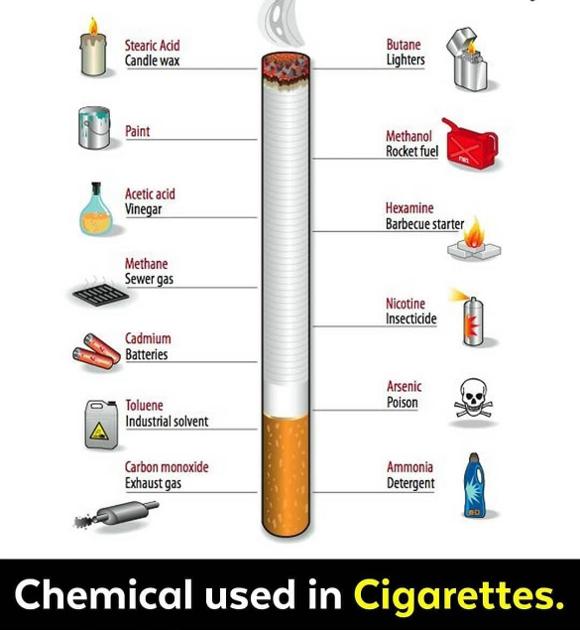A Disturbing List of Toxic Chemicals in Cigarettes
Their actions lead to heart disease, stroke and blood vessel disease. metals – tobacco smoke contains several metals that cause cancer, including arsenic, beryllium, cadmium, chromium, cobalt, lead and nickel. radioactive compounds – tobacco smoke contains radioactive compounds that are known to be carcinogenic.
If you are a smoker, you may try not to think about the chemicals in cigarettes. Poisons, toxic metals, and carcinogens enter your bloodstream with every puff you take. Those chemicals affect everything from blood pressure and pulse rate to the health of your organs and immune system. Take a closer look at some of the harmful chemicals in cigarettes and how they affect your health.
Chemicals in Cigarettes
Air tainted with cigarette smoke is dangerous for anyone who breathes it, smoker or not. These are the chemicals that you are exposed to in cigarette smoke.
Carcinogens
A carcinogen is defined as any substance that can cause or aggravate cancer. Approximately 70 of the chemicals in cigarettes are known to cause cancer.
• Benzene can be found in pesticides and gasoline. It is present in high levels in cigarette smoke and accounts for half of all human exposure to this hazardous chemical.
• Formaldehyde is a chemical that, in liquid form, is used to preserve dead bodies. In gaseous form, it is responsible for some of the nose, throat, and eye irritation smokers experience when breathing in cigarette smoke.
• Vinyl chloride is a man-made chemical that is used to make plastics. Smokers are exposed to it through cigarette filters.
Toxic Metals
Toxic/heavy metals are metals and metal compounds that have the potential to harm our health when absorbed or inhaled. In very small amounts, some of these metals support life, but when taken in large amounts, they can become toxic.
• Arsenic is commonly used in rat poison. Arsenic finds its way into cigarette smoke through some of the pesticides that are used in tobacco farming.
• Cadmium is a toxic heavy metal that is used in batteries. Smokers typically have twice as much cadmium in their bodies as non-smokers.
Radioactive Toxic Metals
There are a couple of toxic metals in cigarette smoke that carry an extra punch of danger for anyone breathing it in because they are radioactive. Lead-210 (Pb-210) and polonium-210 (Po-210) are poisonous, radioactive heavy metals that research has shown to be present in cigarette smoke.
Poisons
Poison is defined as any substance that, when introduced to a living organism, causes severe physical distress or death. Science has discovered approximately 250 poisonous gases in cigarette smoke.
• Ammonia compounds are commonly used in cleaning products and fertilizers. Ammonia is also used to boost the impact of nicotine on manufactured cigarettes.
• Carbon monoxide is present in car exhaust and is lethal in large amounts. Cigarette smoke can contain high levels of carbon monoxide.
• Hydrogen cyanide was used to kill people in the gas chambers. It can be found in cigarette smoke.
• Nicotine is a poison used in pesticides and is the addictive element in cigarettes.
Secondhand Smoke
Also known as environmental tobacco smoke, second-hand smoke is a term used to describe cigarette smoke that comes from two sources—smoke that is exhaled by the smoker (mainstream smoke) and smoke produced by a smouldering cigarette (side stream smoke).
Second-hand smoke is known to contain at least 250 poisonous chemicals and another 70 cancer-causing chemicals.
According to the U.S. Surgeon General, there is no risk-free level of exposure to second-hand smoke. That means if you can smell cigarette smoke in the air, it could be harming your health.
If You're Still Smoking
There is no time like the present start on your journey to a smoke-free life. You'll be rewarded with benefits beyond what you can probably imagine and they'll start to occur faster than you think.
Within 20 minutes of your last cigarette, your body will begin to heal.
The improvements in your mental and physical health will continue to grow. It is never too late to quit smoking.
